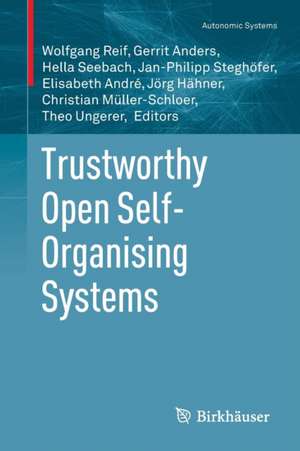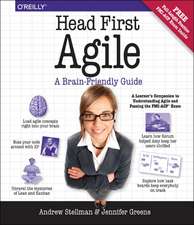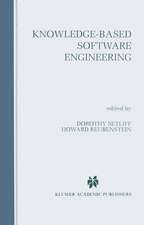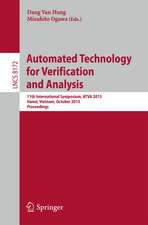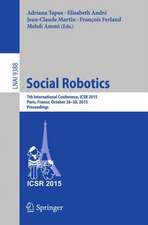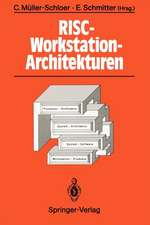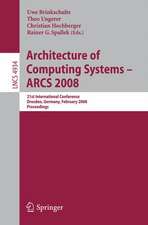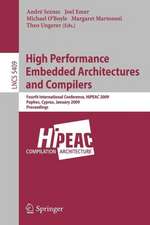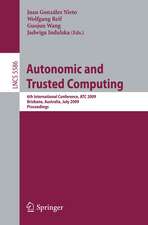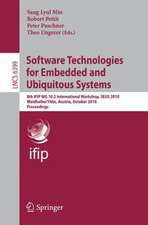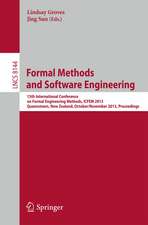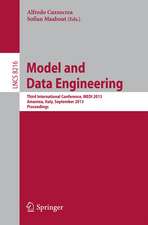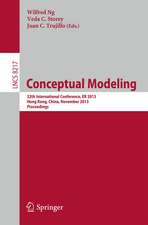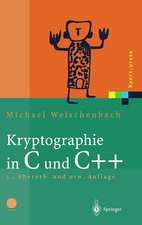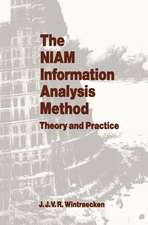Trustworthy Open Self-Organising Systems: Autonomic Systems
Editat de Wolfgang Reif, Gerrit Anders, Hella Seebach, Jan-Philipp Steghöfer, Elisabeth André, Jörg Hähner, Christian Müller-Schloer, Theo Ungereren Limba Engleză Paperback – 27 iun 2016
Thesesystems are composed of technical and human constituents that interact witheach other in an open environment. Heterogeneity, large scale, and uncertaintyin the behaviour of the constituents and the environment are the rule ratherthan the exception.
Ensuringthe trustworthiness of such systems allows their technical constituents tointeract with each other in a reliable, secure, and predictable way while theirhuman users are able to understand and control them.
"TrustworthyOpen Self-Organising Systems" contains a wealth of knowledge, fromtrustworthy self-organisation mechanisms, to trust models, methods to measure auser's trust in a system, a discussion of social concepts beyond trust, andinsights into the impact open self-organising systems will have on society.
Preț: 330.56 lei
Preț vechi: 413.21 lei
-20% Nou
Puncte Express: 496
Preț estimativ în valută:
63.25€ • 67.64$ • 52.74£
63.25€ • 67.64$ • 52.74£
Carte tipărită la comandă
Livrare economică 18 aprilie-02 mai
Preluare comenzi: 021 569.72.76
Specificații
ISBN-13: 9783319291994
ISBN-10: 3319291998
Pagini: 240
Ilustrații: XIV, 244 p. 76 illus., 54 illus. in color.
Dimensiuni: 155 x 235 x 14 mm
Greutate: 0.37 kg
Ediția:1st ed. 2016
Editura: Springer International Publishing
Colecția Birkhäuser
Seria Autonomic Systems
Locul publicării:Cham, Switzerland
ISBN-10: 3319291998
Pagini: 240
Ilustrații: XIV, 244 p. 76 illus., 54 illus. in color.
Dimensiuni: 155 x 235 x 14 mm
Greutate: 0.37 kg
Ediția:1st ed. 2016
Editura: Springer International Publishing
Colecția Birkhäuser
Seria Autonomic Systems
Locul publicării:Cham, Switzerland
Cuprins
Part I: Design of Trustworthy Self-Organizing Large-Scale Open Systems Wolfgang Reif et al..- Part II: HCI Design for Trustworthy Organic Computing Elisabeth André et al..- Part III: Self-Organizing Trusted Communities a Top-down Approach Christian Müller-Schloer et al..- Part IV: Self-Organizing Trusted Communities a Bottom-up Approach Jörg Hähner et al..- Part V: A Trust-Enabling Middleware (TEM) Theo Ungerer et al..- Part V-X: Invited Contributions.
Textul de pe ultima copertă
This booktreats the computational use of social concepts as the focal point for therealisation of a novel class of socio-technical systems, comprising smartgrids, public display environments, and grid computing.
Thesesystems are composed of technical and human constituents that interact witheach other in an open environment. Heterogeneity, large scale, and uncertaintyin the behaviour of the constituents and the environment are the rule ratherthan the exception.
Ensuringthe trustworthiness of such systems allows their technical constituents tointeract with each other in a reliable, secure, and predictable way while theirhuman users are able to understand and control them.
"TrustworthyOpen Self-Organising Systems" contains a wealth of knowledge, fromtrustworthy self-organisation mechanisms, to trust models, methods to measure auser's trust in a system, a discussion of social concepts beyond trust, andinsights into the impact open self-organising systems will have on society.
Thesesystems are composed of technical and human constituents that interact witheach other in an open environment. Heterogeneity, large scale, and uncertaintyin the behaviour of the constituents and the environment are the rule ratherthan the exception.
Ensuringthe trustworthiness of such systems allows their technical constituents tointeract with each other in a reliable, secure, and predictable way while theirhuman users are able to understand and control them.
"TrustworthyOpen Self-Organising Systems" contains a wealth of knowledge, fromtrustworthy self-organisation mechanisms, to trust models, methods to measure auser's trust in a system, a discussion of social concepts beyond trust, andinsights into the impact open self-organising systems will have on society.
Caracteristici
Investigates in which way social concepts, such as trust, can be used in the course of the design and the implementation of technical self-organizing systems in order to increase their efficiency and robustness These investigations significantly distinguishes the books contributions from existing publications in the field of Organic Computing and self-organizing systems Contributions will range from methods for controlling emergent behavior over trust-based self-organization and self-optimization algorithms as well as adaptive trust-based user interfaces to software engineering guidelines for open self-organizing systems
